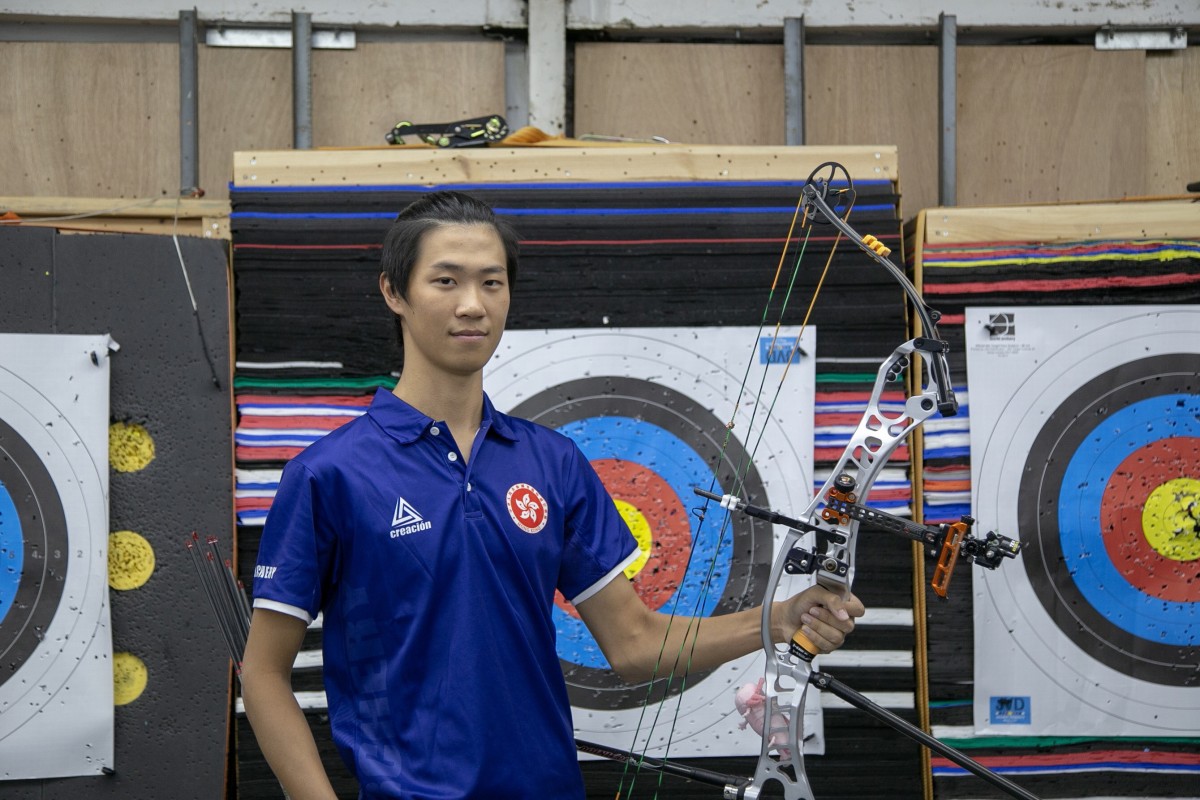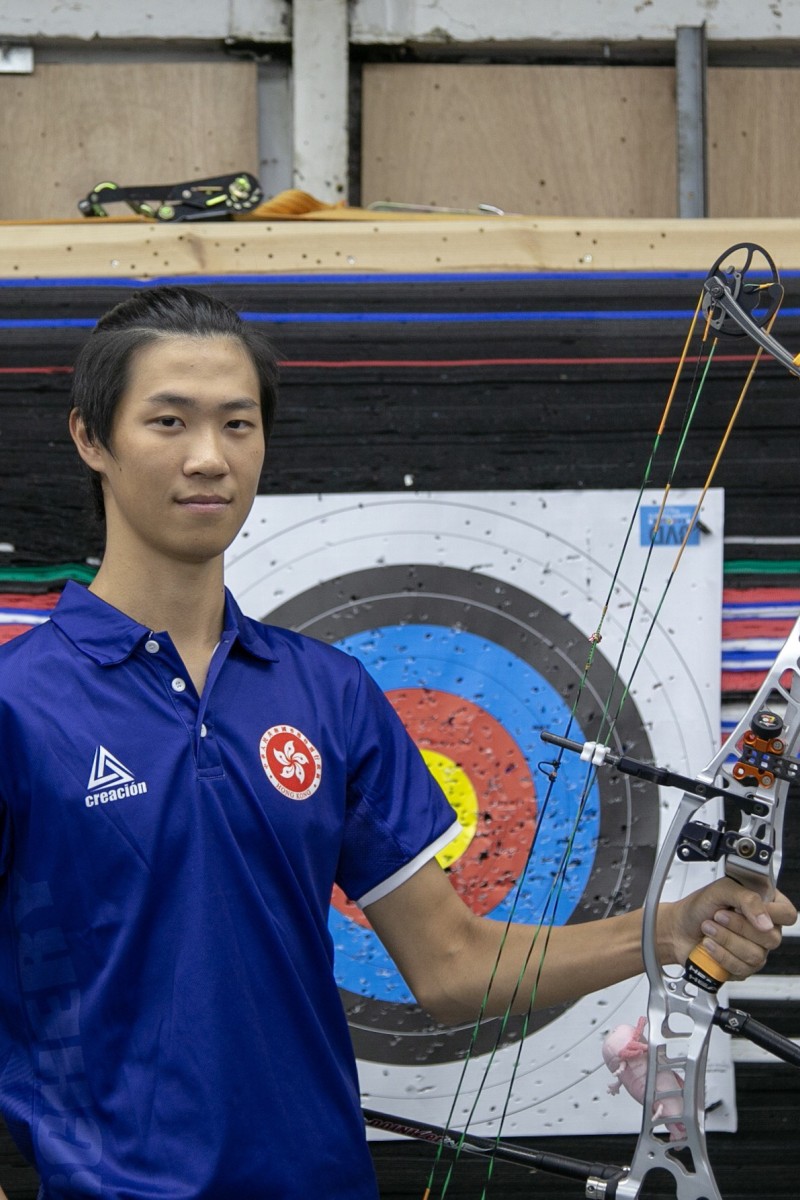 Jacky hopes for more government support for archery in Hong Kong.
Jacky hopes for more government support for archery in Hong Kong.Bringing his bow to eye level, Jacky Tsui Chun-kit locked his gaze on the centre of the target. He was in the zone, and felt everything around him become still. As he carefully released his fingers, the arrow shot from the bow and pierced the bulls-eye.
This extreme concentration is the reason he managed to break two Hong Kong junior records and come second in the men’s compound bow event at the Southeast Asian Open Archery Championship in Myanmar early last month, even though it was the first time he had represented the city in an overseas tournament.
“I really did not expect to get a medal because I had never represented Hong Kong before. I was very nervous, but I’m glad that it did not affect my performance much.”
Competition nerves are common among athletes, but they are especially crippling for archers because mental pressure can cause the unwanted muscle movements, the slightest of which could affect their precision.
Jacky had to learn a painful lesson before he appreciated the importance of keeping calm during a game.
The 19-year-old, who took up the sport three years ago, had hoped to make it into the top three at his penultimate inter-school championship. But his dream was shattered when he assembled his bow wrongly before the match. It was a devastating experience for the young bowman as he finished last, but the incident transformed him entirely as an athlete.
“My friends still make fun of me for that competition, but I have become a lot more cautious since then. I check my equipment multiple times to make sure I have everything I need,” said Jacky.
The biomedical science student at HKU Space said one of the toughest parts of being an archer, aside from the stress, is maintaining a high standard throughout the long competition hours. Although archery does not involve a lot of movement, the sport requires a lot of mental strength. A contest typically lasts for nine to 10 hours, so it is exhausting
A sport with ancient roots, archery has evolved into a modern competitive andrecreational sport worldwide. Yet it is still not a mainstream activity in Hong Kong, and it receives little support from the government. To represent the city, archers have to take part in selection trials and ranking competitions, but even if they make it onto the list, there is no venue where they can train together.
“When preparing for major international tournaments, we only train in our clubs, because there is no space to build a training venue big enough to accommodate all members of the national team,” he said.
Nevertheless, part-time archers like Jacky are looking for ways to build a sports career. He is exploring different alternatives; the most viable option appears to be coaching and training at the same time. While the plan is not set yet, he is looking forward to starting his coaching course, and giving himself more options.
“For now, I want to focus on the upcoming local ranking competitions, so I can remain on the Hong Kong team. For my long-term goal, I hope I can compete at the Hangzhou Asian Games in four years’ time.”
Despite the physical and mental challenges, Jacky said the sport has definite benefits. He loves how the world seems to slow down when he practises; and he also said that archery had boosted his academic performance.
“It helped to improve my concentration a lot, now I can study five to six hours without being distracted,” Jacky said.
“In Hong Kong, we have to do everything in a hurry, but you can never rush through archery.”
